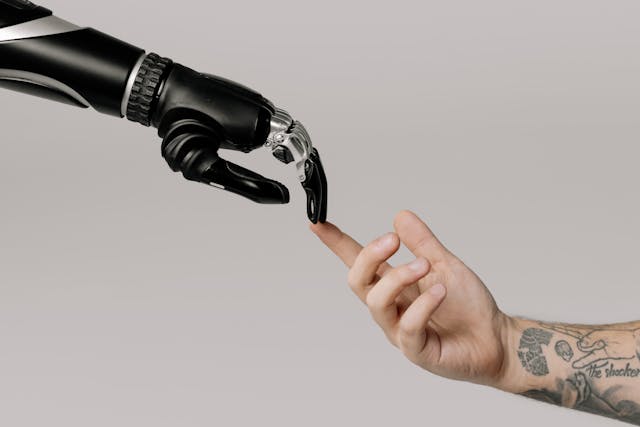Facts About Artificial Intelligence
Artificial intelligence (AI) is an area of computer science in which computers simulate human intelligence by learning from data and simulating human thought processes. Machine learning, a subset of AI that allows computers to learn autonomously without being explicitly programmed, often complements AI.
Have you ever noticed why most AI bots feature female-like voices?
According to research, people tend to respond more favorably when presented with smooth female tones in AI bots.
1. Artificial Intelligence able to learn
Artificial intelligence can learn from data and use that knowledge to solve problems – making it useful in applications as diverse as search engines, voice assistants, and automated phone systems.
AI can also learn to improve itself over time through reinforcement learning, becoming more accurate and making more intelligent decisions over time.
AI can perform many different tasks, from recognizing objects in images to translating text, as well as detecting specific chemicals like those associated with Parkinson’s disease.
At present, there are four types of artificial intelligence; reactive machines capable of only performing one task like chess-playing AIs are considered weak while stronger AI can adapt quickly to novel situations while recalling past experiences – this kind of intelligence can be found in self-driving cars or hospital operating rooms.
2. It’s able to think

AI may seem like an entirely modern concept, with self-driving cars and robots often featured in futuristic sci-fi films. Yet this notion of imbuing objects with intelligence dates back to ancient Greece where Hephaestus would make robot-like servants out of gold for His service.
Modern AI relies on data and algorithms designed specifically to make decisions and learn, which enables it to complete tasks faster and more accurately than human beings.
One study discovered that AI could design computer chips faster and more accurately than human engineers would in less than 6 hours, saving months in work hours. AI also can perform certain tasks autonomously such as learning to recognize patterns in images. Medical studies have confirmed its ability to detect cancer more reliably than humans can.
3. It’s able to communicate
Artificial Intelligence can now communicate effectively with humans using natural language and even small talk. Thanks to advancements in neural networks and generative models, AI systems now produce text and speech that is hard to distinguish from human-created content.
AI can be used in many ways to make decisions and fulfill requests, including automating tasks to reduce manual labor. This increases efficiency while decreasing errors – though this approach comes with risks such as development costs and possible job replacement by AI.
Businesses of all kinds are already taking steps to integrate artificial intelligence (AI) into their workflows, with Gmail using machine learning to automatically categorize emails and suggest responses, recommend products/services to customers that increase sales, and aid project managers by cutting time spent on routine tasks while freeing workers to be more creative.
4. It’s able to make decisions
AI can make decisions quickly and accurately. For example, AI can quickly evaluate massive data sets to spot patterns that would go undetected by humans; additionally, AI eliminates cognitive biases during decision-making processes to generate more objective, fact-based outcomes.
AI can assist business leaders in making vital business decisions such as inventory management, talent acquisition, and more – freeing them up to focus on more complex tasks requiring emotional intelligence and experience.
AI can also perform routine tasks, like processing payroll or routing calls to their appropriate agents, which allows employees to focus on more challenging work and increase company productivity. AI also provides insights that would otherwise escape human notice, such as market trends or customer preferences – it even predicts outcomes with greater precision than humans do!
5. It’s able to beat humans at games
Since the dawn of AI, games have long served as a measure of machine performance. But since Deep Blue defeated Garry Kasparov at chess in 1997, computers may even outwit humans at more complex games than just chess.
AlphaGo made waves in 2016 when it defeated one of the best Go players ever seen, an achievement widely considered one of the greatest AI achievements to date. This unprecedented accomplishment stands as a mark of its greatness in AI history.
AI has grown far beyond simply crunching numbers and analyzing data; it is also an emerging creative force. AI now writes music, paints artworks, and composes poems – just another way that AI makes life simpler and enjoyable – truly astounding technology!
6. It’s able to solve problems
Deep Blue was an early AI that became famous when it beat Garry Kasparov in 1996, using pattern recognition to identify different pieces on the board. These early machines are considered examples of artificial intelligence; weak AI simply performs one task while strong AI mimics human intelligence more closely.
AI has become part of our daily lives in numerous ways. For instance, your favorite music app likely uses AI to recommend songs; Netflix uses it to suggest movies; Uber and Lyft use AI to calculate fare charges; etc.
Future healthcare practitioners could turn to AI to diagnose illnesses more accurately. AI can detect genetic sequences linked to specific illnesses and help physicians select an effective drug therapy. Furthermore, predictive analytics makes predictions about future behavior that could save lives.
7. It’s able to predict the future
AI’s future is both fascinating and unnerving. Already being used across industries from banking to healthcare – banks use it to predict whether customers will pay off loans, hospitals use it to detect patients at risk of disease, and auto insurance companies utilize AI algorithms for setting rates.
Artificial Intelligence can accurately forecast future events based on patterns and statistics. However, AI programs can sometimes make mistakes due to biases and other issues; for example, if an AI program was trained using datasets with bias towards certain ethnic groups it would likely show this bias against other groups as well.
There are ways to mitigate these problems, however. One such technique is transformational learning, which allows AI systems to learn from past errors and continually develop themselves.
8. It’s able to create art
AI promises an intriguing future, yet also presents significant risks. One main fear associated with this emerging field is that eventually, AI may replace humans entirely.
However, there are ways to combat the risks posed by this potential reality. One such way is using AI for creative pursuits – for instance creating music, paintings, and even poetry using it! AI has even been employed to produce animated movies!
AI can also be used to develop robots. Hanson Robotics’ Sophia humanoid robot provides an example. AI has also proven useful when used for medical procedures; AI can detect breast cancer with great accuracy as well as make diagnoses just as accurate as doctors due to AI’s capacity for learning and processing information.
9. Artificial Intelligence able to beat humans at sports
Artificial Intelligence has already revolutionized our world in many ways. From self-driving cars to automated teller machines, its influence is felt worldwide by millions of people.
Artificial intelligence has proven itself adept at outwitting humans when it comes to sports. Coaches, athletes, and fans are using AI technologies like Coach AI to make better decisions that lead to improved performances from teams and players as a result of better decisions by AI algorithms.
AI can analyze weather patterns and forecast natural disasters with precision, helping protect lives and property. One AI system was able to forecast a hurricane with 99 percent accuracy – saving lives by alerting people of its approaching route and helping avoid power outages and traffic congestion. AI systems can even assist with medical diagnosis – one such AI system was recently demonstrated to be capable of accurately diagnosing metastatic breast cancer with a high level of accuracy.
10. It’s able to make decisions
AI’s main advantage lies in its speed to make decisions more quickly than humans and its ability to accurately predict outcomes, thus minimizing human errors. Furthermore, its round-the-clock operation makes AI an invaluable asset for businesses that must make decisions without depending on employees to do it for them.
AI can improve productivity by automating tasks and reducing human error, solving complex problems using advanced algorithms, and even designing computer chips in less than six hours compared to months for humans – meaning AI is likely to replace some jobs shortly – which explains why many companies invest heavily in it.
Read more articles https://techkemp.com/

